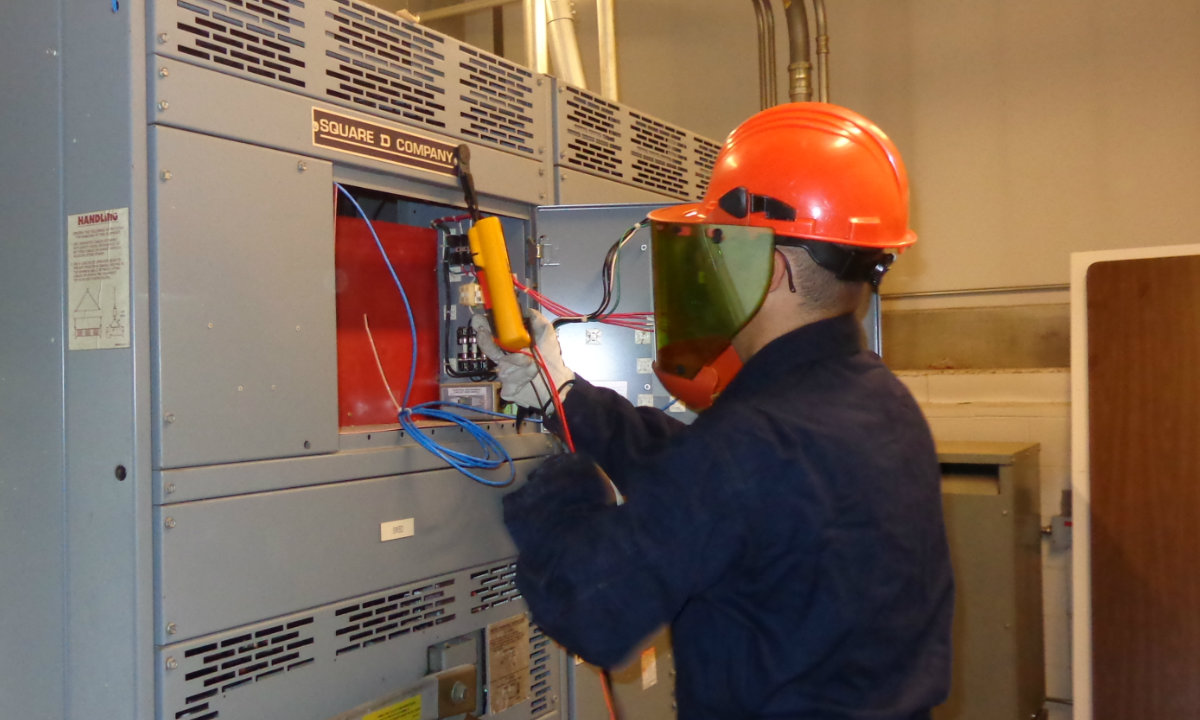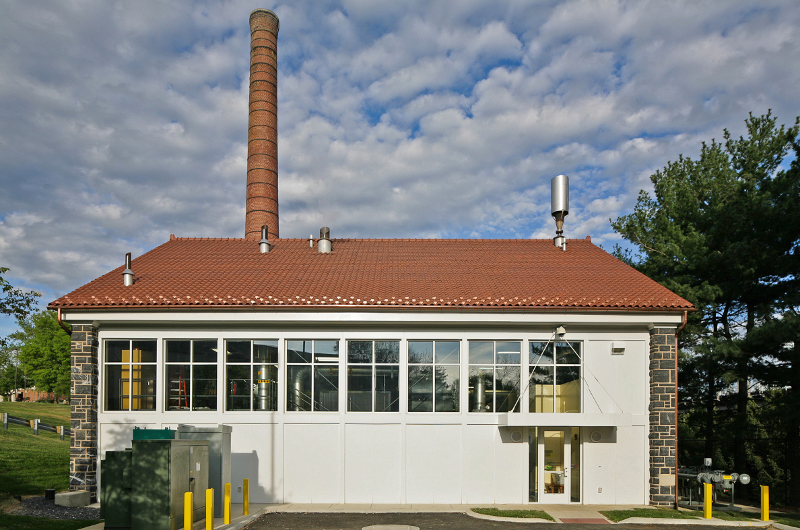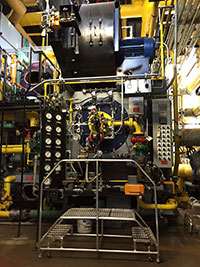The Facilities Management Energy and Utilities department oversees the operations and maintenance of high voltage electric systems, three steam and chiller plants, water storage and pumping facilities, and the associated distribution systems needed to transport these services to University buildings.
Energy and Utilities consists of four divisions:
Heating, Ventilation, and Air-Conditioning (HVAC)
Building Automation Shop
Our Building Automation Shop staff monitors major equipment such as air handlers, chillers, and boilers to ensure proper operation of the equipment and save energy. BAS has adopted the following sustainable measures to ensure operations are socially, economically, and environmentally responsible:
-
-
Irrigation has been installed in various areas on campus and an automated schedule has been created to reduce manpower and water consumption.
-
Temperature sensors are monitored in 19 buildings on campus--these sensors control the temperature when the building is not occupied, which saves money and energy by not heating or cooling areas not in use.
-
Demand ventilation systems based on CO2 levels have been installed in various buildings on campus. Demand ventilation using CO2 sensing is a combination of two technologies, a strategy that adjusts the amount of outside air based on the number of occupants and the ventilation demands those occupants create. This strategy is used to both control energy costs and assure sufficient ventilation.
-
Heating, Ventilation, Air-Conditioning (HVAC) and Refrigeration
The HVAC team is responsible for providing and maintaining the heating, cooling, and ventilation systems on campus. In addition, HVAC monitors humidity and indoor air quality across a range of buildings that require special environmental conditions, including library special collections, storage units, IT rooms, as well as wood-working and metals shops. HVAC is also responsible for refrigeration operations on campus, both for dining services and athletics in addition to various specialty applications including the refrigeration of science labs, environmental capsules, and cryogenic labs. To ensure sustainability in its operations, the HVAC team has adopted the following practices:
-
-
A well-organized preventative maintenance schedule has been established to ensure optimal life expectancy of our equipment at peak performance levels.
-
Biodegradable, environmentally friendly Envircoil™ coil cleaner is used to clean AC coils.
-
Two diesel trucks have been purchased for the HVAC shop to help reduce emissions.
-
Surplus equipment is donated to Massanutten Vo-Tech to provide students with training equipment and reduce the amount of units sent to the landfill.
-
Power Plants
The Power Plant staff manages the steam and chiller plants on campus, which provide heating and cooling services to over 5.2 million square feet of building space on campus. Charged by JMU's commitment to sustainability, the Power Plants team has adopted the following measures:
-
-
JMU Power Plant staff has implemented a campus-wide steam trap survey to ensure peak operating efficiency. JMU currently has approximately 2,000 steam traps that are inspected twice a year.
-
The steam plant has the ability to use bio-diesel as an alternative fuel source.
-
Monthly inspections are performed on steam and condensate equipment in the mechanical rooms to locate and repair leaks, which reduces loss of energy campus wide.
-
Cleaning and inspection of heat exchangers and converters on hot water heaters in the central steam plant are performed annually to increase thermal efficiency of various components throughout the steam and condensate systems.
-
Combustion analysis on the central steam plant boilers are performed semi-annually to increase and maintain combustion efficiencies.
-
Variable frequency drives have been installed on all motors 5HP and above to decrease energy consumption.
-
The Power Plant staff is implementing combustion technologies with newly designed combustion controls on boilers to increase steam production and decrease emissions.
-
Burner Shop
The Burner Shop staff maintains the small packaged unit boilers on campus and has adopted the following practices to incorporate sustainability in its operations:
-
-
Perform annual combustion analysis, maintain and ensure combustion efficiencies are at optimum conditions.
-
Perform annual cleaning and inspection ensure thermal efficiencies are maintained.
-
In an effort to decrease energy consumption, Energy Star™ rated products are purchased when available.
-
Use of modern combustion control systems decreases emissions and increases efficiencies.
-




